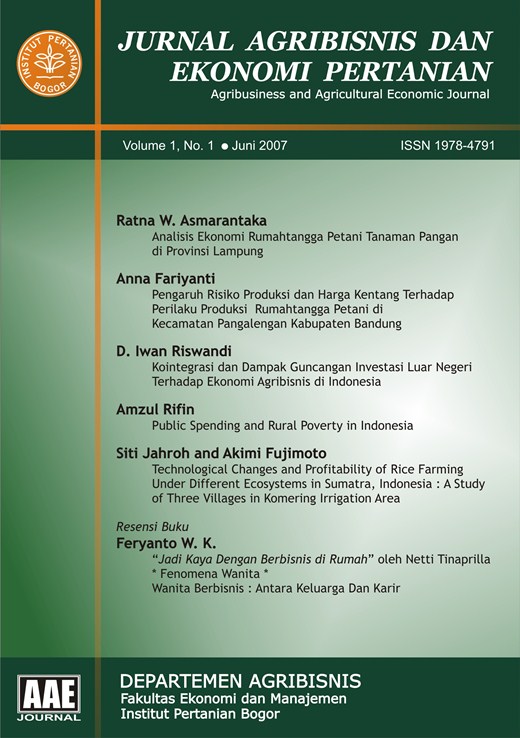TECHNOLOGICAL CHANGES AND PROFITABILITY OF RICE FARMING UNDER DIFFERENT ECOSYSTEMS IN SUMATRA, INDONESIA: A STUDY OF THREE VILLAGES IN KOMERING IRRIGATION AREA
Abstract
contribution of rice production in Java to the total production in the country has decreased, it has become difficult to depend on Java alone in order to achieve rice self-sufficiency. Thus, extensification program outside Java can be one of the solutions.Based on the questionnaire survey conducted in three villages in Komering Irrigation area in Sumatra, this paper clarified the technological changes in rice farming from rain-fed to irrigated rice field. The future shift of technology from rain-fed to irrigated rice farming will not face many difficulties, since farmers under the rain-fed ecosystem have adopted modern technology, commonly practiced under the irrigated ecosystem, except for direct seeding. By the development of irrigation infrastructure and technology, the productivity has increased and farmers under the newly-irrigated and well-irrigated ecosystems could earn net income double and triple than that of farmers under the rain-fed ecosystem. In addition, because of the stable water supply, farmers were able to diversify their rice fields by cultivating vegetables and raising fish. Thus, land use diversification is needed to be further investigated.

